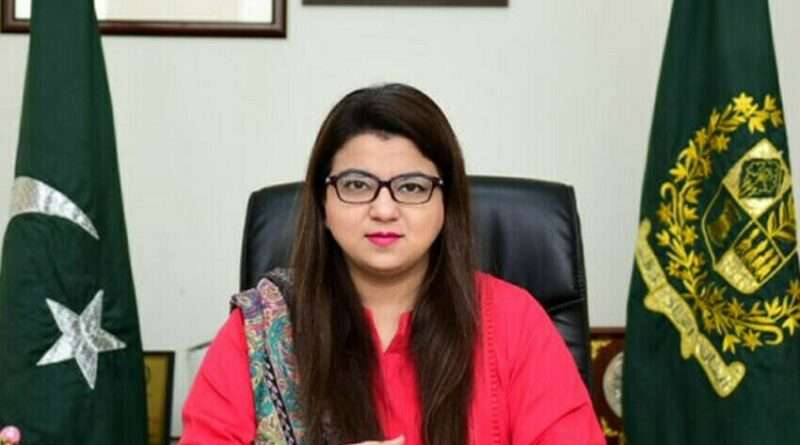Smart Village Project Transforms Rural Pakistan
|
Getting your Trinity Audio player ready...
|
The Government of Pakistan, through its ambitious Digital Pakistan Vision, has initiated a groundbreaking initiative called the Smart Village Project. This project aims to digitally connect rural and remote areas, improving the quality of life and addressing issues related to health, education, and employment. As the first country in the Asia-Pacific region to provide e-village facilities, Pakistan is setting a global example for digital transformation in rural communities.
What is the Smart Village Project?
The Smart Village Project is a pioneering step to connect villages to the digital world, ensuring that rural residents benefit from the advantages of modern technology. The initiative is focused on addressing the challenges faced by these areas, such as limited access to healthcare, education, and employment opportunities. By introducing digital solutions, this project aims to create a sustainable model for rural development.
The Vision Behind the Project
The Smart Village Project is designed under the framework of Pakistan’s Digital Pakistan Vision. This vision, spearheaded by the Ministry of IT and Telecommunication, envisions a digitally connected society where every citizen, regardless of their location, has access to digital tools that can enhance their quality of life. By providing digital facilities in healthcare, education, and business, the project aims to bridge the gap between urban and rural areas, fostering inclusive growth and development.
Launching Asia’s First Smart Village in Sialkot
The first Smart Village project in Asia was launched in Roras Village, located in the Sambrial Tehsil, about 15 kilometers from Sialkot. This pilot project is a collaboration between several key players, including the Ministry of Information, International Telecommunication Union (ITU), Huawei, Bedari NGO, and Tele-Education. The project has set the stage for expanding digital connectivity in rural Pakistan, with the goal of bringing modern solutions to the most underserved areas.
The Inauguration of the Smart Village Project
During the inauguration ceremony, Shaza Fatima Khawaja, the Minister of State for IT and Telecommunication, emphasized the importance of this initiative in improving the lives of people in rural areas. She stated that the project’s objective is not only to connect remote regions digitally but also to empower the youth by providing them with the necessary skills to thrive in the modern workforce.
“The Smart Village project will bring the digital world to rural areas, solving daily challenges and opening new opportunities for the residents,” said Khawaja.
Key Features of the Smart Village Project
The Smart Village Project is designed to provide comprehensive digital facilities in the areas of education, healthcare, and employment. Below are some of the key features of the project:
1. Digital Education Facilities
One of the main pillars of the project is to provide quality education to rural students through virtual education. A state-of-the-art computer lab has been set up in a secondary school for girls in Roras, allowing students to access online learning resources, participate in virtual classes, and improve their digital literacy. The initiative is aimed at ensuring that students in rural areas do not miss out on educational opportunities due to the lack of infrastructure.
2. Health and Medical Services
Access to healthcare in rural areas of Pakistan has always been a challenge due to limited medical facilities and expertise. The Smart Village Project seeks to address this by providing digital medical consultancy. This service allows residents to consult doctors online, receive medical advice, and get prescriptions without the need to travel long distances to a healthcare facility. This virtual healthcare system is expected to reduce medical costs and improve health outcomes in remote areas.
3. Skill Development and Employment
The Digital Village Centre in Roras will also offer business and computer skill courses for local youth. These courses are aimed at enhancing the employability of young people by equipping them with the skills needed in today’s digital economy. Moreover, these initiatives will create employment opportunities, allowing the youth to start their own businesses or find jobs in the digital sector.
4. Sustainable Digital Solutions
The Smart Village Project is designed to be sustainable in the long term. By leveraging solar-powered internet connectivity and affordable technology, the project ensures that the digital infrastructure remains operational even in remote areas with limited access to electricity. This approach helps make digital solutions more accessible to rural populations, who are often disconnected from the urban-centric digital landscape.
Partnerships Driving the Smart Village Project
The success of the Smart Village Project is due to the collaborative efforts of several organizations. Below are some of the key players involved in this transformative initiative:
1. International Telecommunication Union (ITU)
The ITU has played a significant role in the development and implementation of the project. As a global leader in telecommunications, ITU’s involvement ensures that the digital infrastructure meets international standards, enabling the rural population to benefit from high-quality services in education, health, and other sectors.
2. Huawei
As a leading global technology company, Huawei has contributed its expertise in providing the necessary telecommunication infrastructure for the Smart Village Project. Huawei’s advanced digital solutions, such as 4G internet and solar-powered connectivity, are crucial in ensuring the sustainability and success of the initiative.
3. Bedari NGO
The Bedari NGO has been instrumental in community mobilization and awareness, ensuring that local residents understand the benefits of the Smart Village Project. Their role includes organizing training sessions for the youth and women, helping them make the most of the opportunities provided by the digital services.
4. Tele-Education
Tele-Education plays a vital role in delivering virtual education to the students in the Smart Village. Through online classes, workshops, and digital resources, Tele-Education ensures that students in rural areas have access to high-quality educational content.
Expanding the Smart Village Concept Across Pakistan
Following the success of the pilot project in Roras Village, the Government of Pakistan plans to expand the Smart Village concept to other provinces. This expansion will ensure that more remote and underserved areas benefit from the digital transformation. The goal is to provide e-village facilities across the country, creating a digital ecosystem that enhances the lives of millions of rural residents.
The Impact of the Smart Village Project on Rural Development
The Smart Village Project has the potential to transform rural Pakistan in several ways:
- Improved Access to Education: By providing virtual education opportunities, the project ensures that students in remote areas receive the same quality of education as their urban counterparts.
- Better Healthcare Services: Digital medical consultancy helps rural residents access healthcare without the need to travel long distances.
- Empowered Youth: The project’s focus on skill development opens up new employment and entrepreneurship opportunities for the youth, reducing unemployment and boosting the local economy.
- Sustainable Development: The use of solar-powered digital infrastructure ensures that the project remains sustainable in the long run.
Frequently Asked Questions (FAQs)
1. What is the Smart Village Project in Pakistan?
The Smart Village Project aims to digitally connect remote and rural areas, improving education, healthcare, and employment opportunities through digital solutions.
2. Where is the first Smart Village located?
The first Smart Village was inaugurated in Roras Village, Sambrial Tehsil, in Sialkot, Pakistan.
3. What kind of services does the Smart Village provide?
The project provides digital education, medical consultancy, and skill development courses for youth, along with access to digital business and employment opportunities.
4. Who are the partners in the Smart Village Project?
Key partners include the International Telecommunication Union (ITU), Huawei, Bedari NGO, and Tele-Education.
5. Will the Smart Village Project expand to other areas of Pakistan?
Yes, the project is set to expand to other provinces, with plans to provide e-village facilities across the country.
Conclusion: A New Era for Rural Development in Pakistan
The Smart Village Project represents a bold step forward in Pakistan’s commitment to digital transformation. By improving access to education, healthcare, and employment, the project is paving the way for a more inclusive and sustainable future for rural communities. As this initiative expands across the country, it holds the potential to unlock untapped opportunities and improve the lives of millions of people in remote areas.




